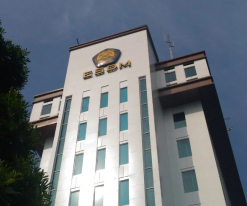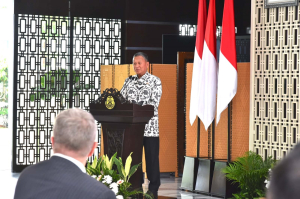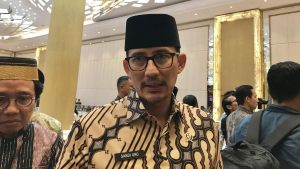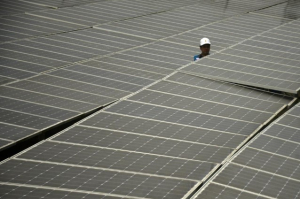China's investment in Indonesia's gas sector fuels clean energy transition
Ministry of Energy and Mineral Resources (ESDM) has extended an invitation to Chinese oil and gas companies to invest in the expansion of gas development projects in Indonesia.
This strategic move reflects the government's commitment to accelerating the utilization of natural gas as a crucial component of Indonesia's clean energy transition.
On September 19, 2023, Arifin Tasrif, the Minister of ESDM, expressed the government's willingness to embrace Chinese gas companies.
"We are opening doors for esteemed gas companies to invest in the development of gas projects in Indonesia," stated Arifin.
This initiative takes place under the auspices of CACEW (China-ASEAN Clean Energy Cooperation and Development Forum), where the Indonesian Ministry of ESDM serves as a co-chair.
CACEW marks the first-ever collaborative effort between China and ASEAN countries to discuss sustainable energy transition and clean energy development. This includes policy issues, technical standards, and green financing.
During this significant occasion, Minister Arifin highlighted Indonesia's firm commitment to harnessing its domestic natural gas resources more extensively.
Key commitments involve the construction of integrated gas transmission and distribution networks, as well as the development of essential infrastructure such as Floating Storage Regasification Units (FSRU), refineries, and liquefied natural gas (LNG) terminals.
"Our utilization of natural gas extends to urban gas networks, pipeline systems, and the conversion of diesel fuel to gas in power generation," Minister Arifin emphasized.
Notably, Luhut Binsar Pandjaitan, Minister for Maritime Affairs and Investment, previously identified five priority sectors for Chinese investment in Indonesia.
These sectors encompass developments in metals, transportation, telecommunications, and the provision of electricity, gas, and water.
Additionally, China is keenly interested in investments in industrial areas, real estate, chemicals, and pharmaceuticals.
On a separate note, in a remarkable surge of economic cooperation, China emerged as the second-largest investor in Indonesia in 2022, with an impressive infusion of capital amounting to US$ 8.2 billion—a remarkable increase of 156.25% compared to the previous year.
Indonesia's initiative to engage Chinese gas companies in the development of its gas sector not only fosters economic growth but also plays a pivotal role in advancing the nation's transition towards cleaner and more sustainable energy sources.
This collaboration marks a significant milestone in the ongoing partnership between Indonesia and China, bringing promising prospects for a brighter, cleaner energy future.
Tag
Already have an account? Sign In
-
Start reading
Freemium
-
Monthly Subscription
30% OFF$26.03
$37.19/MonthCancel anytime
This offer is open to all new subscribers!
Subscribe now -
Yearly Subscription
33% OFF$228.13
$340.5/YearCancel anytime
This offer is open to all new subscribers!
Subscribe now






